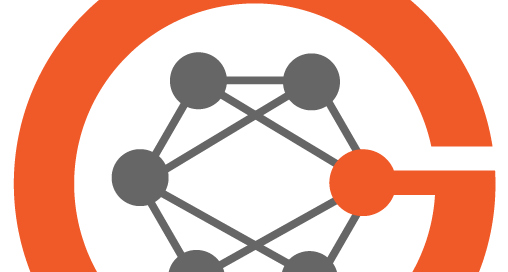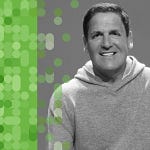If you care about what you eat, you won’t want to miss this conversation! Chris Van Tulleken is an infectious disease physician-scientist in the UK’s National Health Service who has written a deeply researched masterpiece book on food—ULTRA-PROCESSED PEOPLE. It’s not just about these synthetic and artificial UPF substances, that carry many health hazards, but also about our lifestyle and diet, challenging dogma about low carbs/glycemic index and the impact of exercise.
Chris ate an 80% UPF diet for a month with extensive baseline and follow-up assessments including MRI brain scans. He has an identical twin brother who at times is 20 kg heavier than him. Why? What can be done to get limit pervasive UPF ingestion and its multitude of adverse effects on our health?
For additional background to the book, here are some Figures and a Table from a recent BMJ piece by Mathilde Touvier and colleagues.
Consumption of UPFs are highest in the USA and UK
A Table summarizing some of the health hazards and magnitude of increased risk
In his book Chris gets into the evidence for risks that are much broader than cardio- metabolic, including cancer, dementia, inflammatory bowel disease, and other chronic conditions.
A schematic for how UPFs increase the risk of cardiometabolic diseases
Here is the transcript of our conversation, unedited, with links to the audio podcast.
Recorded October 20, 2023.
Eric Topol (00:00):
It's Eric Topol here with Ground Truths. And what a delight for me to welcome Chris van Tulleken, who has written a masterpiece. It's called Ultra-processed People, and it's actually much more beyond ultra-processed food as I learned. We're going to get into how it covers things like exercise, nutrition in general, all sorts of things. Welcome, Chris.
Christoffer van Tulleken (00:27):
It's such a pleasure to be here. And there's no one I would rather say that about my book than you, so that means a huge amount.
Eric Topol (00:35):
Well, I was kind of blown away, but I have to tell you, and it's probably going to affect my eating behavior and other things as we'll discuss for years to come. You're going to be stuck in my head. So what's interesting, before we get into the thick of it, your background, I mean as a molecular virologist turned into a person that devoted so much to food science, and you go through that in the book, how you basically got into rigorous reviews of papers and demand for high quality science and then somehow you migrated into this area. Maybe you could just give us a little bit of background on that.
Christoffer van Tulleken (01:20):
So I suppose it feels a tenuous thing. I'm an infectious diseases clinician, but the only people who get infections are disadvantaged people. For the most part, rich people well off people get cardiometabolic disease. And so I worked a lot in very low income settings in South Asia and Pakistan in the hills and in Central and West Africa. And the leading cause of death in the kids I was seeing in the infants was the marketing of food companies. So food, particularly formula, but also baby food was being made up with filthy water. And so these children were getting this triple jeopardy where they were having bugs, they were ingesting bugs from filthy water. Their parents were becoming poor because they couldn't afford the food and they lacked the immune system of breast milk in the very young. And so it sort of presented itself, although I was treating infections that the root of the problem was the food companies. And now my work has sort of expanded to understanding that poor diets has overtaken tobacco or it's depending on the number set you look at, but the Lancet Global health data shows that poor diets overtaken tobacco is the leading cause of early death globally. And so we need to start thinking about this problem in terms of the companies that cause it. So that's how I still treat patients with infections, but that was my route into being interested in what we call the commercial determinants of health.
Eric Topol (02:52):
Yeah, well you've really done it. I have 15 pages of highlights and notes that I got from the book and book. I mean, wow. But I guess the summary statement that somebody said to you during the course of the book, because you researched it heavily, not just through articles, but talking to experts that ultra-processed foods is not food, it's an industrial produced edible substance, and really it gets graphic with the bacteria that's slime and anthem gum and I mean all this stuff, I mean everywhere I look, I see. And I mean all these, I mean just amazing stuff. So before we get into the nitty gritty of some of these additives and synthetic crap, you did an experiment and with the great University College in London where you took I guess 80% of your diet for a month of up pfs. So can you tell us about that experiment, what it did for you, what you learned from it?
Christoffer van Tulleken (04:04):
Yeah, so it wasn't just a stunt for the book. I was the first patient in a big study that I'm now running. It's a clinical trial of ultra-processed food. And so I was a way of gathering data. I mean, you know how these things work, Eric. I was teaming up with my neuroscience colleagues to do MRI scans my metabolic colleagues instead of going, look, if we put patients on this diet, how would it all look and what should we be investigating if we do MRI scans, will we see anything? And so I ate various news outlets have portrayed this as kind of me heroically putting my body on the line for science. I ate a completely normal diet for many American adults. About one in five Americans eats the diet of 80% of their calories. It's a very typical diet for a British or an American teenager or young person.
(04:52):
So it wasn't arduous. And I was really looking forward to this diet because like most 45 year old doctors, I have started because of my marriage and my children, you start to eat in a rather healthy way. And this was amazing opportunity to go back to eating the garbage that I'd eaten as a teenager. I was going back to these foods I loved. So I guess there were kind of four things that happened. There were these three physical effects on my body. I gained a huge amount of weight and I wasn't force-feeding myself. And that really chimes with the epidemiological data that we have and from the clinical trial data run by Kevin Hall at the NIH, that this is food that gets around your body's evolved mechanisms that say, stop eating, you're full. Now the second thing that happened is we did some brain scans and I thought, well, the brain scan we're not going to see anything in a month of normal food.
(05:43):
So I switched from about 20% to 80% and we saw enormous changes in connectivity between the habit, automatic behavior bits at the back in the cerebellum and the reward addiction bits in the middle in the limbic system and associated regions. So that was very significant in me. And we did follow-up scans and those changes were robust and we really have no idea what is happening in children who are eating this stuff from birth to their brains, but it's concerning. And then the most intriguing thing was I ate a standard meal at the beginning of the diet and we measured my hormonal response to the food. And I think people are more and more familiar with some of these hormones because we've got drugs like semaglutide or wegovy that are interrupting these fullness or these hunger hormone pathways. And what we saw was that my hunger hormone response to a standard meal, my hunger hormones remain sky high at the end of the diet.
(06:41):
So this is food that is fiddling with your body's ability to say I'm done. But the most amazing thing was that this experience I had where the food became disgusting, there was this moment talking to a friend in Brazil called Fernanda Rabu. She's an incredible scientist, and she was the one who said, it's not food, Chris. It's an industrially produced edible substance. And I sat down that night to eat, I think it was a meal of fried chicken. And I was reading the ingredients and I could barely finish it. And so the invitation in my book is, please keep eating this food, read your ingredients lists and ask yourself why are you eating maltodextrin? What is it? Why are you eating xantham gum? What is diacetyl tartaric acid esters of monoglycerides of fatty acids? Why is that in your bread?
Eric Topol (07:31):
Yeah. Well, and then the other thing that the experiment brought out was the inflammatory response with the high C-reactive protein, fivefold leptin. So I mean, it really was extraordinary. Now the other thing that was fascinating is you have an identical twin. His name is, is it Xand?
Christoffer van Tulleken (07:51):
Zand, like Alexander,
Eric Topol (07:53):
Just
Christoffer van Tulleken (07:53):
The middle, full name's Alexander.
Eric Topol (07:55):
So spelled X, but okay, so he's an identical twin and he's up to 20 kilos heavier than you. So this helped you along with all the other research that you did in citations to understand the balance between genetics and environment with respect to how you gain weight. Is that right?
Christoffer van Tulleken (08:16):
That's right. So I have all the genetic risk factors for weight gain. And I know this because I've done studies with colleagues at the MRC unit at Cambridge, and I have all the polymorphisms, the little minor genetic changes that are very common. I have them all associated with weight. Now you can see I'm sitting here at the high end of healthy weight. I'm not thin, but I'm not. I'm just below overweight. And what protects me is my environment. And by that we mean my education, the amount of money I have, I have very little stress in my life. I have a supportive family. I have enough time to cook, I have a fridge, I have cutting boards, I have skills that I can do all that with. When my twin with this set of genetic risk factors moved to the states, he went to do a master's degree in Boston and he had a son in an unplanned way who's Julian is a much beloved member of the family, but it was very stressful.
(09:15):
What now? 13 years ago, and Zand kind of ate his problems, but the problems that he ate were ultra-processed food. So ultra-processed food, it's one of the ways in which the harms of poverty are expressed. So we know that people who live in stress and being poor is a significant source of stress. So it's disadvantaged. People generally smoke more, they drink more alcohol, they use gambling apps and they eat terrible food. And that is because of the environment they're in. It has nothing to do with their willpower or their choices. So part of the book is trying to reveal really that for many people, the food environment, the food that's available and they can afford is extremely violent to their bodies. And generally that's the environment of people who are already living with disadvantage.
Eric Topol (10:06):
Well, the data, which I wasn't fully familiar with, I have to say that you reviewed in the book, and then you may have seen in the British Medical Journal, there was a very good paper on ultra-processed food just published recently. I'm sure you know these folks. And not only does it review the point you made that 60% of the American diet and the UK diet is from ultra-processed food, but that all the analyses show 40% higher risk of type two diabetes, 35% risk of cardiovascular event, increased hypertension, 29% risk of all-cause mortality, 41% risk of abdominal obesity, metabolic syndrome, 81% higher risk. This isn't even yours. This is the review of all the literature, cardiovascular mortality, 50% higher risk. You mentioned the death from high U P F diet, 22% of all deaths. This is big. I mean, this is something I didn't realize. I knew it wasn't good, but I didn't realize the toll it was taking on the species. I mean, it's remarkable.
Christoffer van Tulleken (11:17):
It is in a sense, it's not enormously surprising. So the thing I think that is confusing a lot of people, there are two sort of sources of confusion. One is that the working definition that we all use is basically if something has an additive you don't find in a typical home kitchen, then it's an ultra-processed food. Now that has led a lot of people to go, well, the problem is the additives. Now, some of the additives, we think there's very good evidence they are causing harm. So the non-nutritive sweeteners, we had a huge paper come out and sell this summer. It's not referenced in the book, but the World Health Organization have written a position. And you may well know this literature better than me, but there's a growing concern that these products are definitely not better than sugar and they may predispose to metabolic disease and microbiome effects the emulsifier.
(12:07):
Again, we've got pretty good evidence that many of the synthetic emulsifies, and they are in everything. They're in your soda, your toothpaste, your bread, your mayonnaise. The emulsifiers are ubiquitous because they give a slimy mouthfeel that people like. So some of the additives are an issue, but the additives are just a proxy for food that is made with no regard for your health. And so a lot of the research I'm doing now is with economists. And so we're going to publish a paper in the next couple of months where one of the questions we've asked is, when it comes to the big transnational food corporations, is there good evidence within the corporations they care about human health? Because the companies that make this food say, we practice stakeholder capitalism, we care about the environment, we care about our farmers, we care about kids, people, our customers, we care about your health.
(12:58):
What we can show is that the way the companies spend their money is not to reinvest in those people, those stakeholders, they use it to buy shares back. So every quarter they do share buybacks to drive up equity value. We can show that when public health proposals reach the board or reach investors, institutional investors always vote down those public health proposals. And we have really good examples at Unilever, Pepsi and Dannon where CEOs have said, we want to make the food healthier and activist investors have fired the CEOs or fired the boards. So the companies are making the food with the purpose of generating money for institutional investors, usually pension funds. And so to me, it's not very surprising if you put yourself in the position of being a scientist at one of these companies or being a C E O and the market's saturated, we've all got enough food, you have to make food using the cheapest possible ingredients with the longest shelf life, and it has to be addictive or quasi addictive. That's the only way you can get us to buy more and more of it. And now that the states and the uk, Australia were saturated, they're starting to move very aggressively into south and Central America. I mean, they've largely done that, but now the focus is on West Africa, south Asia, east Asia, and Central Africa. So the purpose of the food, we call this system financialization, all the incentives in the system are financial. And so it's not surprising the food isn't very good for us.
Eric Topol (14:31):
And one thing I did like is that you did get into the companies involved here, and you also noted many times throughout the book about these scientists that said they didn't have any conflict and then turned out they had quite a lot of conflicts. And so one of the things I thought about while you mentioned about the transnational trans fats, trans fats were basically outlawed. And why can't we get, I think you touched on this in the chapter right before the end about we're just not going to be able to get these companies to change their ways, but why can't we get these U P Ss, particularly the ones that are most injurious? And by the way, you've proven that through three, not just the epidemiologic studies, which many people will argue diet logs are not so perfect, even though when it's in tens of thousands or hundreds of thousands of people. You mentioned, I wouldn't go back to the Kevin Hall experiments because he's really a noted researcher here in the US at NIH and also the biologic plausibility, which you've shown in spades throughout the book. But so with all this proof, why can't there be a path towards making these products, the ones that are the most implicated, illegal, and like the trans facts?
Christoffer van Tulleken (15:56):
So there are several answers to that. First of all, I guess my approach as an activist, and so I see in a kind of strange space because on the one hand I'm a scientist and I try and be fairly dispassionate. On the other hand, as you say, we now have very robust data. We've got more than a decade's worth. I mean, Kevin Hall sent a lovely tweet the other day, which I can unpack a bit, but this isn't argument basically between independent scientists and the industry and the industry are very, very skillful at mounting their arguments. So the argument of industry is, look, ultra-processed with the definition is wooly. It's not agreed on. These are largely observational studies. We need more randomized trials. The real problem with food, is it being high-fat, salt, sugar? And Kevin sent a brilliant tweet where it was in someone else where someone was going, look, why can't we just call it high-fat salt sugar?
(16:52):
What's processing got to do with anything? And Kevin said, well, look, no one has ever agreed on the definition of high-fat salt sugar. Whereas the definition of U P F is extremely widely agreed on, and we have now over a thousand studies linking it to negative health outcomes. So in terms of why we can't ban it, I guess my answer is I think it's politically extremely important not to frame it, not to frame things in terms of banning. If we want to see the gains that we got with smoking, my proposal is we need to regulate this food. We need to warden people, but we need to use the language of the political right and of the free market to get people on board. I want to increase everyone's choice in freedom. I don't want to take anywhere and cocoa pops or soda pop away.
(17:36):
It's fine if people want to buy that, but they should have a warning label on it and they should be able to buy fresh, affordable, healthy food. And what we know is that people like you and I, we will eat a bit of ultra-processed food, but broadly, people with resources don't eat this stuff. It's low income families that are forced to. So partly, I don't think we should be making it illegal, but the main reason is there is an enormous power. I mean, any one of these companies has the annual marketing budget that is maybe four or five times the entire World Health Organization operating budget each year. Okay, so we're talking 10 billion versus a couple of billion, and that's just for a company like Nestle or Danon or Coke. So the might of these corporations is overwhelming. And so the struggle will be very much as it was with tobacco.
(18:30):
And we have to be very careful how we sort of proceed and what we ask for. One of the issues that's going on at the moment is the definition of UPF at the moment is not suitable for legislation. So if we said, well, look, we are going to try and put a tax 10% tax on all UPF what will happen is the companies will have a lawsuit of every single additive. So they'll go, well, xantham gum is in kitchens actually, because we sell it in bags and people with celiac use it to bake at home. So then we have to have an exhausting discussion. So there's a group led by Barry Popkin and a number of other brilliant researchers who are creating a definition that it will include, I'm going to make this up, non-nutritive sweeteners, emulsifiers energy density and softness. And that will all with, we've got loads of randomized trials on all of that, and that will withstand the lawsuits. So it's about the technical approach has to be a very sophisticated one about resisting corporate power and the template has to be tobacco.
Eric Topol (19:33):
Yeah. Well, I think you've given a good response to those who would wonder, but the warning, as you know very well, far better than me, all we have on the foods are the nutrients of protein, carbohydrate, fat, saturated fat. There's nothing about warnings about the process. Ultra-processed content, which has to get fixed at some point in that
Christoffer van Tulleken (19:57):
It has to, I mean, it is astound. What's going to happen is there are going to be lawsuits. So people are working on this and it's very hard to bring lawsuits around food, but one angle will be to focus on soda pop. So there should be a warning. And all the fizzy pop, it all contains phosphoric acid, which leeches minerals out of your bones, it dissolves your teeth, the sugar rots your teeth. And we will start to find communities that only drink one brand because there is a couple of very dominant brands, and they will be able to bring class action lawsuits about dental decay, and that's how it'll start. But in Argentina, in Chile, Columbia, they now on Cannes of cola do have big black hexagons. So it can be done. And I think the populations in the UK, obesity and diet related diseases reach such a crisis. People are so angry about this. And I think the people, the grassroots sentiment is I'm being gaslit by the people who sell my food. They've told me if I eat this, it'll help me lose weight. They've told me it will make me well, and it hasn't worked.
Eric Topol (21:03):
Yeah, well, that's for sure. Well, now I want to get into a couple of the things that shakes up the prevailing beliefs, the sacred cows, if you will. One of them is the burning calories with exercise. You really challenge that whole notion in the book, as I said, the book is not just about ultra-processed foods, which completely takes 'em apart, but you challenge the idea that you can work it off exercise, burn off these calories, and you have a pretty substantial part of the book that you really get into part help us understand because still today most people think, well, if I eat that such and such, I'll just exercise. I'll burn off those calories. What's the truth about that?
Christoffer van Tulleken (21:56):
So I wrote the book, I try to lay out the evidence for ultrapro food, but then you have to do some water battery because people always go, yeah, but isn't it because people who live with excess weight have low willpower, so I try and get rid of that. Or isn't it genetic? I can get rid of that. But a big argument is when it comes to the pandemic of obesity, surely it's because we spend all our lives on our phones, we sit around, we watch tv, and none of us work in heavy manufacturing anymore. So this idea was heavily promoted through a number of institutions, particularly something called the Global Energy Balance Network, and thousands of scientific papers in good robust peer reviewed journals. And some colleagues of mine at the London School of Hygiene and Tropical Medicines and Public health doctors did this incredible network analysis where they looked at the links between funding and all of these papers and all of the conferences that said, look, if you drink too much sugar or you eat too much chocolate, you just go for a run.
(22:53):
You burn off the calories, energy in energy out. Like it's simple. The entire network, and I really mean all of the papers, thousands of them were funded by the Coca-Cola Corporation. Now, in and of itself, that doesn't prove that it's a complete myth. But at the same time since the 1990s, there's been this real puzzling thing about our most sophisticated way of measuring energy expenditure using this technique called double labeled water. And there was this finding that no one could explain. It kept happening in all the studies in humans and in animals that people of the same size and shape and age and sex burn the same number of calories, whether they're subsistence farmers in Nigeria or secretarial workers in Chicago, whether they're hunter gatherers or office workers, everyone seems to burn the same 45 year old men who weigh 85 kilos like me. We can be hunter gatherers, we can be office-based doctors.
(23:51):
We burn the same number of calories. And a guy called Herman Ponsa pulled this together and he said, it seems like what is happening is that we have evolved to burn the same number of calories every day. Now, if you go for a run, you have to steal energy from other budgets. You can't violate the laws of physics. So if I burn 3000 calories today and I go for a 200 calorie run, I will take that 200 calories from my inflammation budget, from my anxiety budget, from my reproductive hormone budget. And that is why exercise is good for us. Now, what this doesn't mean is if you're cycling in the Tour de France, so you're an elite athlete or you're mountaineering, then you do burn more calories each day. And we've known that for a long time, but the kind of exercise that we all do each day, if we go to the gym a couple of times a week, that doesn't seem to affect our calorie expenditure. And the reason that, I mean, I'm an MD PhD, I feel I understand how the body works. I would say the reason I was unaware of that until I started writing the book and trying to figure out the piece of the puzzle I was missing is because of the Coca-Cola corporation. And there incredible network of edibles was network of literature that they funded.
Eric Topol (25:01):
Well, it shook me up because I was thinking all these years about, well, if I burned 500 calories, the other thing I thought about is I've had a knee operation replacement and I'm going to be immobilized and I'm going to get fat just because I can't exercise. And this was fascinating and you just reviewed it in a nutshell. It's really great for people to read that. Now, another one that you really took apart. So you and I both know Gary Taubes and I'm glad that
Christoffer van Tulleken (25:32):
You had, and I want to say I love, I haven't spoken to him since the book, but I really, really love Gary. I think he's a brilliant guy
Eric Topol (25:40):
And he has a new book that I blurbed about, not out yet on diabetes and all the lies about diabetes, but the book, he's been very influential as you know. And one of the things that he helped carry over the goal line and many others is this glycemic index and that the real reason we're fat is because we eat too much carbs and that it raises our insulin level and it makes us hungry. Basically, that's the simple dumbed down version and that he had been purporting that as the main driver of the obesity epidemic. You take issue with that, I would say, because you would say Uhuh maybe not so fast that UPFs are an important part of the story, and maybe it's not so simple as this glycemic index. Do I interpret that correctly?
Christoffer van Tulleken (26:35):
Yeah. So the sugar insulin debate is a long and exhausting one. And Gary, I would say, I mean he's a physicist by training and an incredible brain, and I think very few people have moved human nutrition further than Gary. Now, I would say the way he moved it is he got this incredible set of experiments funded, undertaken by Kevin Hall that really showed that there doesn't seem to be a particularly large difference between fat based diets or carb based diets in terms of how they affect your overall energy expenditure. And to some extent, it's not very interesting when we are talking about life out in the real world, there's a lab question about whether or not the carbohydrate insulin mechanism is really what's going on. And I would side kind of, I guess with Kevin Hall on that and said, I don't think the way you construct your diet in terms of its nutrients massively affects energy expenditure.
(27:38):
But in a sense, it's a bit moot because out in the real world, very few people are able to eat these ketogenic diets and stay on them. Some people are, a lot of people on the internet are, but kind of out in real life. We eat the food we're faced with. So I think sugar is very harmful in two ways. It rots teeth, and if you add sugar to food, you eat more of the food. And you can do this with any child at breakfast, you can give 'em a bowl of plain porridge and they won't eat much of it. You put two spoonfuls of sugar on it, they eat masses. Now, you haven't given them many more calories in terms of the sugar, but you've made something very appetite stimulating. So I think the crucial thing about all the research on U P F is it's all made adjustments for fat, salt, sugar, and fiber.
(28:25):
The big question for the epidemiologist has been are we sure this isn't just junk food that's high in fat, high in salt, high in sugar, and that's eaten by people who live in terrible housing and drink lots of alcohol and smoke lots. So the epidemiologists are very skillful at controlling for that. You can't control for everything. But what's consistent over all of the hundreds of prospective trials that we now have is that when you adjust for salt, fat, sugar, and fiber, not only does the effect remain in terms of statistical significance, it remains the same in terms of magnitude as well. And that backs up Kevin Hall's data where he had two, he randomized people to two equal diets nutritionally, same salt, fat, sugar, fiber, same deliciousness. People enjoyed the food the same amount. Both groups had as many calories as they could possibly eat, way more.
(29:19):
They have 5,000 calories a day, and yet the ones on the ultra-processed food, lost weight, sorry, on the unprocessed food, lost weight on the ultra-processed food gained weight. So I think what we may see is that when we go back and we redo some of the studies that link fat and sugar, and perhaps it may be salt, although I think salt is particularly in other ways, but when we do adjustments for ultra processing, we may see that the main driver of harm is when we encounter these molecules in formulations that we can't stop eating. So when we go and make the controls for ultra processing and we do the dietary analysis, we may see a dilution of the effect of fat and sugar.
Eric Topol (30:02):
So the people that swear, and there'll be many of them that listen or watch this, read this, they'll say, I went on a low carb diet and I lost all this weight. You would say, well, it wasn't just a low carb diet. There's a lot of other factors that come into play, including the fact that a lot of the carbs that you were eating are loaded with ups.
Christoffer van Tulleken (30:27):
Well, I think that's a great question. I would have two answers for those people. I'd say, well, that's great. And we know that many, if you eat any restrictive diet, so if you eat a low fat diet, a low carb diet, if you eat a diet based on avocados and breakfast cereal, many people will lose weight for some months. And particularly if you cut carbs out, food becomes much less palatable. Spaghetti bolognese is a lot less edible without the spaghetti. So we know that extreme keto diets, very low carb diets, they definitely work and they do help people lose weight. I don't think there's very good evidence that that's because of insulin suppression. I think it's because people eat fewer calories, because carbs make food delicious, and we just eat less of it.
(31:18):
And it may also be that when you cut out carbs, when you go on these diets, often you do switch away from industrially produced food that's very delicious, and you switch into, you become more conscious in other ways. So I think it definitely low carb diets help people lose weight. I'm not arguing that. I don't think it's to do with insulin, and I'm not sure they are. There's much evidence they're more effective than low fat diets, and there's very little evidence that anyone is any good at sticking to any diet for any period of time. Is that fair? I mean, I'm in your area now.
Eric Topol (31:52):
Yeah, no, no, that's a great explanation. A calorie is a calorie, and the diet, when you restrict it, it's going to have an effect at least on a short-term basis that is usually unsustainable over longer periods. I mean, this is, I think a shakeup. These are things in the book while you were directed towards the dissection of ultra-processed food and how our health is being adversely affected along the way. You take on a lot of these issues that people still, they are widely accepted. And that's what I especially enjoyed about the book is learning about your challenge of dogma. Some people when they watch this or listen to this, they're going to say, no, no, that can't be. And again, you're systematic. You quote the biologic plausibility studies, you quote randomized studies done by the likes of Kevin Hall. Well, let's talk about him in a moment. And then you get all these epidemiologic studies coming at everywhere. I mean, the hunt that you did on the research for this to find all these citations and review all them in itself was a tour to force.
Christoffer van Tulleken (33:06):
Whenever you open your mouth about food, you start an argument. And about 50% of the argument is the food industry who want the food industry wants us to believe the problem is with the nutrients because that's the thing they can fool around with. If sugar is the problem, they can take it out and put in the sweetness if that's the problem. They can put in xantham gum and gu gum and modified maize, starch and carrageenan. If salt's the problem, they'll put in potassium chloride. There's all kinds of stuff they can fool around with. They've been doing it since the early eighties and it hasn't worked. So the book is written in a kind of almost legalistic way. I mean, it has to be a legalistic, I mean, three teams of lawyers poured off the whole thing, but also I know I'm going to want people like you to read it, and I know it has to withstand your scrutiny.
Eric Topol (33:57):
It certainly has. I mean, what I love too is that in near one of the last chapters, you say, well, how are we going to get this on track? And you say The medical community, we as physicians caring for patients should be emphasizing this in our communication to patients. And I think that is one way a form of activism to take this on it, hopefully get it on track, largely been ignored. I mean, I think that the problem is because the food labels, even though people look at them, they don't read the fine print. That's where it shows up, if at all, and they're not familiar with the data incriminating all these things that shouldn't be in the food that are making it addictive and dangerous and whatnot. Yeah, I have to say, you have done a masterful job in reshaping my mind, which doesn't happen often when I read a book. I have to say it's just because what I admire is the depth of the citations backing it up. You're not a conspiracy theorist against the food industry. And I think you would be the first one to admit that Some people will say food science with air quotes because where's the science that a lot of the studies are garbage studies that are really questionable
Christoffer van Tulleken (35:20):
And the best science is done in industrial labs, and we don't have them too much access to it. I mean, I spoke, the most interesting community of people I spoke to for the book were people in the industry. They were all lovely. Many of them wouldn't be quoted, but they would explain how it was all done and behind closed doors, they all say, we know what we're doing. We know we are making addictive products. We've also got whistleblowers. And lots of people who have worked for engineer and people like Dana Small at Yale did lots of Pepsi funded research on the sweeteners. And when she published it all and said, look, I'm a bit worried about this, then Pepsi obviously stopped funding her. So yeah, I'm not a conspiracist and I'm also trying to make an argument. I'm not a neo-Marxist, not an anti-capitalist. We can imagine.
(36:08):
Part of the issue is in the states and in the uk, you are subsidizing the production of this food, and there is a whole industry and a whole set of businesses of people who make real food who could produce real food at a much more affordable cost. But instead what we do is we subsidize a very small number of agribusinesses to produce these commodity crops at the expense of the environment and our health, and then we pay less for the food in the shop, but we pay with our health insurance premiums and we pay with our environmental cost and we pay with our bodies as well. So this isn't really cheap food.
Eric Topol (36:50):
Well, that brings me to exacerbating preexisting inequities, which are far worse here in the US than many other countries, including yours. But the fact that there's these food deserts all over the place that the people can't get to, I mean the classification that a lot of people in the medical community are not familiar with the NOVA classification, the NOVA 1, the unprocessed or minimally processed food as opposed to what your book centered on the NOVA 4 ultra-processed food. But people in these desert food deserts can't get to the unprocessed NOVA 1 food and how can we get this righted because this is part of the problem is they're the ones at high risk and now their food that they're taking in is just making that even worse.
Christoffer van Tulleken (37:47):
I guess in my hierarchy of solutions, I have two things that need to be done before everything else. I believe that poverty is a political choice. There is huge amounts of money in both our countries and people. Children born into any household should be able to eat excellent, affordable food. So the number one thing is you have to fight poverty, that you don't need much redistribution. This isn't communism, it's not creeping socialism. It's just saying we could take a little bit of money out of the wealthiest corporations and individuals and lift a few people out of poverty. What we also know is when we do that, it's incredibly, so what's expensive is having an underclass of poor, unhealthy people in your society. So if you are a hawkish right-wing nationalist who wants a good football and a good military and low taxes, then for goodness sake don't have poor people living with terrible health problems.
(38:42):
It's ridiculously expensive. My interest is in social justice, I suppose, and I'm probably, I don't like to talk about my politics, but I'm a doctor working for the National Health Service. I treat patients with infections. So number one is poverty. The second thing you have to interrupt is the conflicts of interest. So in the UK, we had some headlines come out a couple of weeks ago, all the major papers published these headlines where five scientists had got together from something called the Science media center and said, look, ultra-processed foods are fine actually. And in fact, some of them are really healthy and you should eat brown bread and all this hysteria is nonsense. Now, when you looked at the five scientists, one of them had been the senior scientists at Nestle for 15 years. One of them was on the board of a multi-billion pound ultra-processed food company.
(39:35):
One of them had done research for the others and the institution, the science media center, very credible sounding. It's very, very popular in the UK with journalists. They always release press briefings. They're incredibly helpful. The Science media center is self-funded by Proctor and Gamble who make Pringles Nestle, who make Kit Katts and a consortium including Cargill and Coca-Cola. So none of the papers reported this apart from the Guardian did then run a brilliant story on the conflict. We have to see industry money as dirty. No one would accept the British Lung Foundation and their spokespeople taking money from Philip Morris and British American tobacco. We would all go, that's crazy. Well, the food industry are now doing this incredibly brilliant thing, which is exactly what the tobacco industry did, where they're doing this manufacturing doubt. So a lot of my time is spent trying to very carefully frame arguments in a way that is shored up against anyone thinking I'm trying to ban anything or take their fun away.
Eric Topol (40:37):
I love it. Have I missed anything that I should have asked you about? Because we've covered a lot of ground and I can't do justice to this book because it's a phenomenal book, and I hope that the people that are not just those who are worried about their own nutrition, but their loved ones, their patients, whatever, will get into this because you've got a lot of work here to offer to get people up to speed, educated about the problem. But is there anything else you can think of that you want to highlight?
Christoffer van Tulleken (41:12):
I think the only thing I try and underline, and you are always very skillful at this, but it's that I think one of the main harms for people who live with obesity and who live with diet related disease is stigma, particularly from our profession. We treat patients who live with obesity terribly badly. And the book, I hope, if it does, nothing else should try and show to any physician who reads it or any parent that when someone is living with any diet related disease, it really is not them. It is the food. We are saturated in products that we have, good evidence are addictive. They are all around us. And at the moment, our patients who are trying to lose weight, it's like them trying to quit smoking in the 1960s, you and I would be doing this interview smoking away, there'd be clouds of smoke everywhere my kids would be smoking. So that's the environment we're in. And I think if we can give people a break and try and try and not judge them and try and critique the system, that is the outcome that we need.
Eric Topol (42:14):
And here we are. We've got the GLP-1 drugs like Mounjaro and with Wegovy chasing the epidemic. And so we're using drugs, injectable drugs right now to chase something that is partly food mediated, I would say. And the other thing
Christoffer van Tulleken (42:31):
About those drugs that's so interesting is if you take the drug and you don't gain weight, but you continue eating the foods that drive other diseases, the effects where ultra-processed food seems to be associated with cancer, all cause mortality, dementia, anxiety, depression, cardiometabolic disease, that's when you adjust for obesity. So you don't have to gain the weight to have those effects. It's not that those things are caused by the weight gain, they're independently caused. And so you can be taking your Wegovy and you'll still have an elevated risk of cancer unless you change your diet. So these drugs are not going to get us out of the hole. They're going to be wonderful for some people who need to lose weight, but they're terribly expensive and they should not let the government off the hook of making sure that good food is available.
Eric Topol (43:19):
And then the other thing I wonder about, as you know, I work a lot in the AI space and I'm thinking these companies are going to increasingly use AI to make their addiction levels even higher because this is the way to understand how the proteins of the three D structures will bind better to parts of our receptors in our brain and whatnot. I mean, I'm worried that this could even get worse from these companies.
Christoffer van Tulleken (43:50):
It will definitely get worse. So I mean, the point you make is really important at the moment when we think about food addiction and was this brilliant paper was published the other day by Gerhart and Dili Santonio, two wonderful scientists, and they were drawing together a lot of different research showing that the food is addictive, whether you're scanning people or gathering psychiatric data. But the moment, the way we think about addiction is kind of these sugar fat ratios, but clearly it's so much more complex that when we add flavor acid, bitterness, sourness, all of these molecules, plus is exactly as you say, the food matrix, the texture, the smoothness, the fattiness, the packaging, the font animal that's there, the colors, all of it contributes to a sort of gestalt around each product that drives addiction. So yes, there is no question that the academic community has a very primitive understanding of how this food is driving excess consumption.
(44:48):
I suspect the companies know more, but mainly they've just been iterating it for decades. I mean, all the companies said the same thing to me. When they test food, they put it through a tasting panel, and one of the things they measure is how much do people eat and how quickly do they eat it? And if you've got two boxes of cereal, the one that people eat the quickest and the fastest is the one that goes on the shelf. And they've been doing this. You and I ate the same cereals as children, as my kids do. They've been perfecting them for five decades. And so it's not surprising that every single aspect of those cereals or the breads or the spreads, it's all dialed up to 11, whether it's the emulsifier, which one do you use? How much salt, the smoothness, glucose syrup, is it too sweet? A little bit more fructose? Our understanding is so primitive.
Eric Topol (45:41):
Well, your dissection of it is as comprehensive I could ever imagine from the speed that we eat to the texture and the softness and all the other things you just mentioned. So I want to congratulate you. This is, as I said at the top a masterpiece, and I'm really, we should be indebted to you for pulling it all together, and I look forward to further discussions with you because every time I eat now, I'm going to be thinking of you.
Christoffer van Tulleken (46:10):
I love it. I mean, Eric, I cannot tell you, I'm a long time admirer, so it is. Anyway, I'm not going to fanboy too much, but I can't tell you I'm deeply touched and very moved, and so I really appreciate you saying that.
Eric Topol (46:22):
Well, for you to volunteer to help on a Friday night late in the UK to do this, I'm indebted as well. So thanks so much, Chris. I look forward to talking to you much more in the future and really appreciate your joining today.
Christoffer van Tulleken (46:36):
I hope we'll speak again.
Thanks for listening and subscribing to Ground Truths! Please share with your network if you found it useful.


















Share this post